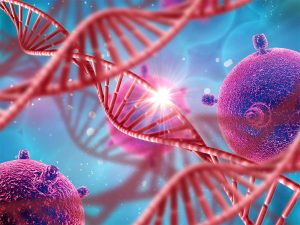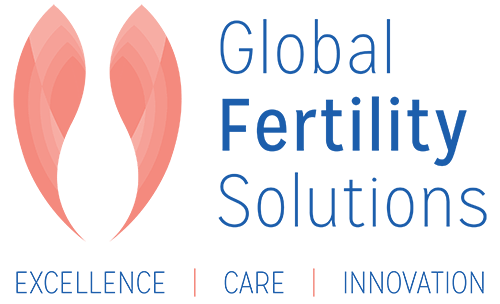 Regenerative medicine, a cutting-edge field at the intersection of biology, medicine, and engineering, holds immense promise in transforming the landscape of healthcare. Among its numerous applications, one area where it exhibits significant potential is in Assisted Reproductive Technology (ART).
Regenerative medicine, a cutting-edge field at the intersection of biology, medicine, and engineering, holds immense promise in transforming the landscape of healthcare. Among its numerous applications, one area where it exhibits significant potential is in Assisted Reproductive Technology (ART).
Moreover, at GFS, we continuously aim to explore the significance of regenerative medicine in ART, examining its current state, potential advancements, and ethical considerations. Besides, by harnessing the power of stem cells, tissue engineering, and gene therapy, regenerative medicine offers new avenues for infertility treatment, gamete and embryo enhancement, and reproductive organ regeneration, paving the way for a future where reproductive challenges are overcome with unprecedented precision and success.
Regenerative medicine offers novel strategies to address infertility, a widespread challenge faced by many couples worldwide. Moreover, stem cell-based therapies hold particular promise in this regard. That said, pluripotent stem cells, capable of differentiating into various cell types, can be utilized to generate functional reproductive cells, such as sperm and eggs, through a process known as in vitro gametogenesis (IVG). IVG provides hope for individuals with fertility issues, including those caused by genetic disorders or cancer treatments.
Moreover, regenerative medicine enables advancements in reproductive tissue engineering. By combining biomaterials, growth factors, and stem cells, researchers can create bioengineered reproductive organs, such as artificial ovaries or testes. Additionally, these organs can potentially restore fertility in individuals who have undergone sterilizing treatments or experienced congenital defects. While these approaches are still in their early stages, they hold great potential for revolutionizing infertility treatment.
Regenerative medicine also plays a crucial role in enhancing gametes (sperm and eggs) and embryos, thereby increasing the chances of successful ART procedures. Through techniques like gene editing, scientists can modify specific genes associated with inheritable diseases, reducing the risk of passing on genetic disorders to future generations. For instance, CRISPR-Cas9 technology allows precise modifications in the DNA sequence of embryos, offering hope for preventing devastating genetic conditions.
Furthermore, regenerative medicine enables the development of techniques to improve embryo quality and selection. By leveraging stem cell research and tissue engineering, scientists can simulate the embryonic environment in the lab, fostering optimal conditions for embryonic development. This advancement holds the potential to enhance the success rates of in vitro fertilization (IVF) procedures, reducing the emotional and financial burden on couples seeking fertility treatments.
Reproductive Organ Regeneration
 Another significant aspect of regenerative medicine in ART is the prospect of regenerating reproductive organs. For individuals with damaged or non-functional reproductive organs, regenerative techniques offer hope for restoration and fertility preservation. Besides, stem cells can be used to regenerate and repair damaged tissues, including those in the uterus, ovaries, or testes. That said, this approach holds potential for individuals with uterine factor infertility, allowing them to carry a pregnancy to term using a bioengineered uterus.
Another significant aspect of regenerative medicine in ART is the prospect of regenerating reproductive organs. For individuals with damaged or non-functional reproductive organs, regenerative techniques offer hope for restoration and fertility preservation. Besides, stem cells can be used to regenerate and repair damaged tissues, including those in the uterus, ovaries, or testes. That said, this approach holds potential for individuals with uterine factor infertility, allowing them to carry a pregnancy to term using a bioengineered uterus.
Additionally, advancements in 3D bioprinting hold promise for creating personalized reproductive organs using a patient’s own cells.
Moreover, this technology enables the precise fabrication of complex tissue structures, providing opportunities for transplantation and long-term functionality. While significant challenges remain, such as vascularization and integration of bioengineered organs, regenerative medicine offers exciting possibilities for restoring reproductive function and improving the quality of life for many individuals.
Ethical Considerations with Regenerative Medicine
With any technological advancement, ethical considerations may also arise. So, even in the context of regenerative medicine and ART, questions regarding genetic manipulation, the creation and use of artificial gametes and embryos, and the potential commodification of reproductive organs need careful scrutiny. Moreover, a comprehensive ethical framework must be established to ensure responsible research practices and protect the rights and well-being of the individuals involved.
How does GFS work towards bringing the best of regenerative medicine for your parenthood goals?
Regenerative medicine presents a paradigm shift in the field of ART, holding immense promise for addressing infertility, enhancing gametes and embryos, and regenerating reproductive organs. Moreover, stem cell-based therapies, tissue engineering, and gene editing techniques are revolutionizing the way we approach reproductive challenges.
However, ethical considerations must be carefully navigated to ensure responsible research and implementation. On the other hand, as regenerative medicine continues to advance, it is crucial to strike a balance between innovation and ethical integrity, fostering a future where ART procedures become more effective, accessible, and personalized, empowering individuals to realize their dreams of parenthood.
This is where our experts at GFS continuously work towards bringing the most of it towards your parenthood goals. With constant research and innovation, we further aim towards finding newer and better horizons to bring yours closer to your child-seeking aspirations via ART.
Contact one of our coordinators today to know more!




